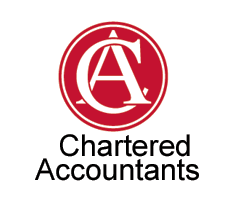The basic budget equation states that:
Income – Expenditure = Profit
To determine an initial amount for your budget, there are three main areas to consider; your business’s sales income, including all possible income streams, the total business expenditure for the budgeted period, and your estimated profits.
Income
When collating income figures for the period that your budget will be covering, make sure that you consider all of your business’s income streams. While sales figures will most often make up the bulk of your income, you should also take into account things like interest, dividends, royalties etc. that your business may be receiving. Any form of regularly received income will count toward your business’s overall income. Estimate your income based on previous figures whenever possible, while also taking into account the current economic climate and recent sales trends. Try to make your estimates as accurate as possible, to increase the efficacy of your budget.
Once you have estimated your business’s income for your budgeted period, you can calculate the necessary expenses required to achieve your goals, and see if you can afford to pursue them now, or how long it will be before you can.
Expenditure
Your business’s overall expenditure for your budgeted period will include all fixed and variable costs, and may also need to take into account inflation and other adjustments, depending on the length of time your budgeted period covers.
Fixed Costs
Your business’s fixed costs are payable amounts that will not change by any significant amount throughout the time allotted by your budget, regardless of how your business is performing. Costs such as rent for office space and equipment are fixed for a specified period by the terms of the rental agreement and cannot vary within the period that the agreement covers. These can be estimated accurately based on such agreements.
Variable Costs
Costs that will change significantly within your budgeted period are your variable costs. It is more difficult to estimate variable costs, as they can change based on a number of factors. Some examples of variable costs are your business’s product stock, which can vary greatly depending on your sales and on market prices for materials, transport costs, which will also vary based on your sales, and utility bills. A realistic estimation of these costs should be based on previous payable accounts and predicted sales.
Inflation
If your budget is covering a period of one or more years, you will need to take into account the rate of inflation when estimating your variable costs. The price of goods and services, such as stock and transport, can increase based on annual inflation rates, so it is important to consider these rates when budgeting, in order to estimate your costs as accurately as possible.
Profit
Ideally, your business’s profits should be high enough to make a return on investments, as well providing you with a fair return on your labour.
Achieving a return on capital invested in your business by parties other than yourself should be your first priority, in order to satisfy your investors. Personal investments, including the amount of money that you put into your business as start up capital, and the profit from previous years that you have reinvested into your business, should be your second consideration. It is also important that you receive a return on the time and effort that you have put into the business; the amount that you pay yourself on a weekly, fortnightly or monthly basis should reflect when you could earn working for someone else.
Using these concepts and the basic budget equation, you can estimate your budget for a specified period and plan how to manage your business’s finances, allocating funds appropriately and estimating profit, in order to determine whether or not your business goals for the future are achievable. When setting your budget, remember that it is always safer to over-estimate costs and under estimate your sales income, to decrease your risk of going over your specified budget.


